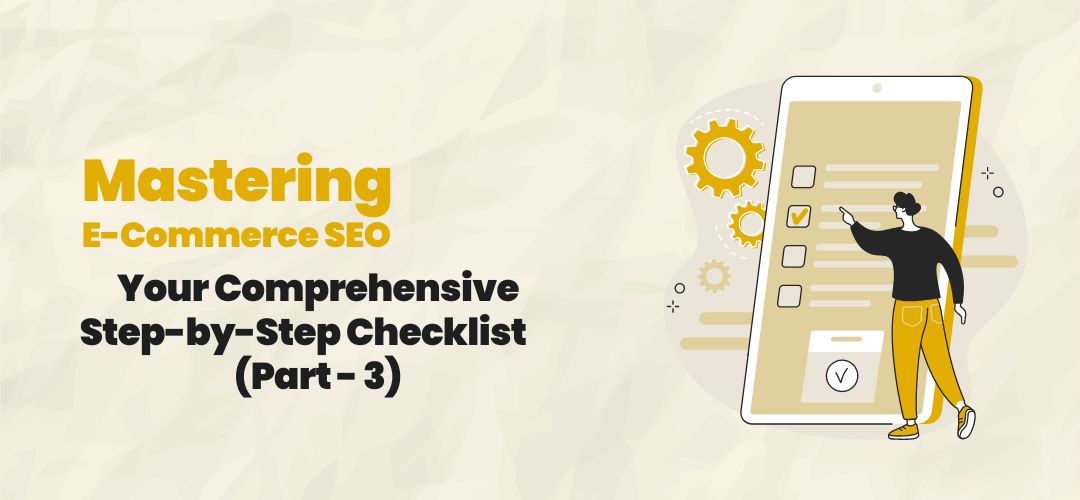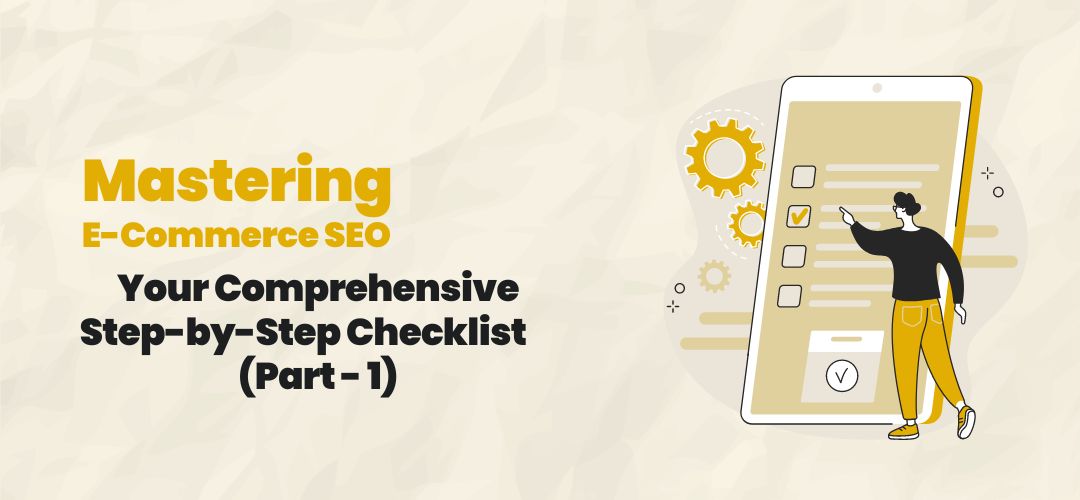
2023 E-Commerce Meta Guide
Are you ready to navigate the fast-paced world of e-commerce, where competition is fierce and attention spans are short? In this highly competitive landscape, every element of your online presence matters. One essential component that can significantly impact your website’s visibility and click-through rate (CTR) on search engine results pages (SERPs) is the art of crafting effective meta titles and descriptions for E-commerce business. In this comprehensive guide, we will delve into the best practices for optimizing meta titles and descriptions in 2023. Specifically tailored for e-commerce businesses seeking to thrive in the digital landscape, these strategies will help you stand out amidst the crowd and attract the right audience to your online store. Definition and Purpose of Meta Titles and Descriptions: Before diving into the intricacies of optimization, let’s understand the fundamental role of meta titles and descriptions. Meta titles are HTML elements that provide a concise and informative title for a webpage. On the other hand, meta descriptions are brief snippets that offer a glimpse into the page’s content, encouraging users to click through and visit your website. Meta titles and descriptions play a critical role in attracting organic traffic to your e-commerce website. They serve as the first point of contact between your webpage and potential visitors on search engine results pages. When a user performs a search query, search engines display relevant search results, with meta titles and descriptions serving as the primary text elements. Here’s an example: Example: Meta Title: “Buy Trendy Women’s Clothing Online | ABC Fashion Store” Meta Description: “Discover the latest collection of trendy women’s clothing at ABC Fashion Store. Browse a wide selection of stylish dresses, tops, and more. Shop now for free shipping on all orders.” In this example, the meta title clearly states what the page offers (trendy women’s clothing) and includes the brand name for brand recognition. Additionally, the meta description provides additional information, enticing users with the promise of a diverse selection and free shipping Meta Title Best Practices: A well-crafted meta title can significantly impact your website’s search engine rankings and CTR. To optimize your meta titles effectively: Length Guidelines and Character Limits: Keep your titles within the recommended character limit to ensure full display on SERPs. Search engines have character limits for displaying meta titles. For example, Google typically displays up to 70 characters, while Bing allows up to 65 characters. Exceeding these limits may result in truncated titles, leading to reduced click-through rates. It is essential to keep your meta titles concise and compelling within the given limits. Example: Suppose you run an online electronics store and want to optimize the meta title for a product page featuring the latest smartphone. The original title is “Brand X Smartphone | Best Deals, Fast Shipping | XYZ Electronics Store.” However, the title exceeds the character limit. After optimization, the new meta title becomes “Brand X Smartphone | Best Deals | XYZ Electronics Store.” Crafting Compelling and Relevant Titles: Create titles that capture the essence of the page’s content and resonate with your target audience. Your meta title should accurately represent the content of the webpage while piquing the interest of users. Consider incorporating unique selling points or attractive offers to compel users to click through to your website. Example: Suppose you manage an online pet supply store and want to optimize the meta title for a new blog post about pet grooming tips. Instead of a generic title like “Pet Grooming Tips,” a more compelling and relevant meta title could be “5 Expert Pet Grooming Tips for a Healthy and Happy Fur Family.” Proper Keyword Usage: Incorporate relevant keywords naturally into your meta titles to improve search rankings. Keywords are essential for signaling to search engines what your webpage is about. However, avoid keyword stuffing, which can harm your search rankings and user experience. Use relevant keywords that align with the content and intent of the page. Example: For an e-commerce website selling fitness equipment, the original meta title for a product page might be “High-Quality Treadmills | Best Fitness Equipment | FitHub Store.” After conducting keyword research, an optimized meta title could be “Premium Treadmills for Home Workouts | FitHub Store.” Accurately Describing Page Content: Avoid misleading titles and ensure alignment with the content of the webpage. Misleading meta titles can frustrate users and result in high bounce rates, negatively affecting your SEO. Always ensure that your meta title provides an accurate preview of what users can expect on the webpage. Example: Suppose you operate an online gourmet coffee shop and want to optimize the meta title for a product page featuring a new coffee blend. The original title is “Exquisite Colombian Coffee | Best Coffee Beans | CoffeeDelights.” After assessing the content, you realize the coffee blend also contains beans from Brazil. To accurately represent the product, the new meta title becomes “Exquisite Colombian and Brazilian Coffee Blend | CoffeeDelights.” Meta Description Best Practices: Meta descriptions are your chance to entice users to click on your link. Follow these best practices for engaging meta descriptions: Length Guidelines and Character Limits: Craft concise descriptions that fit within the designated character limit to prevent truncation on SERPs. Just like meta titles, meta descriptions also have character limits on search engine results pages. Google typically displays up to 160 characters for meta descriptions. Crafting concise and informative descriptions within this limit ensures that users can read the full snippet and understand what your webpage offers. Example: For an online gardening supply store with a product page for a new organic fertilizer, the original meta description might be “Our organic fertilizer is the best choice for your garden. It provides essential nutrients for healthy plants and improved soil fertility.” After optimization, the concise and engaging meta description becomes “Boost plant health with our organic fertilizer – enriched with essential nutrients for thriving gardens.” Writing Concise and Informative Descriptions: Clearly convey the value proposition of your webpage to attract users’ attention. Your meta description should quickly and effectively






